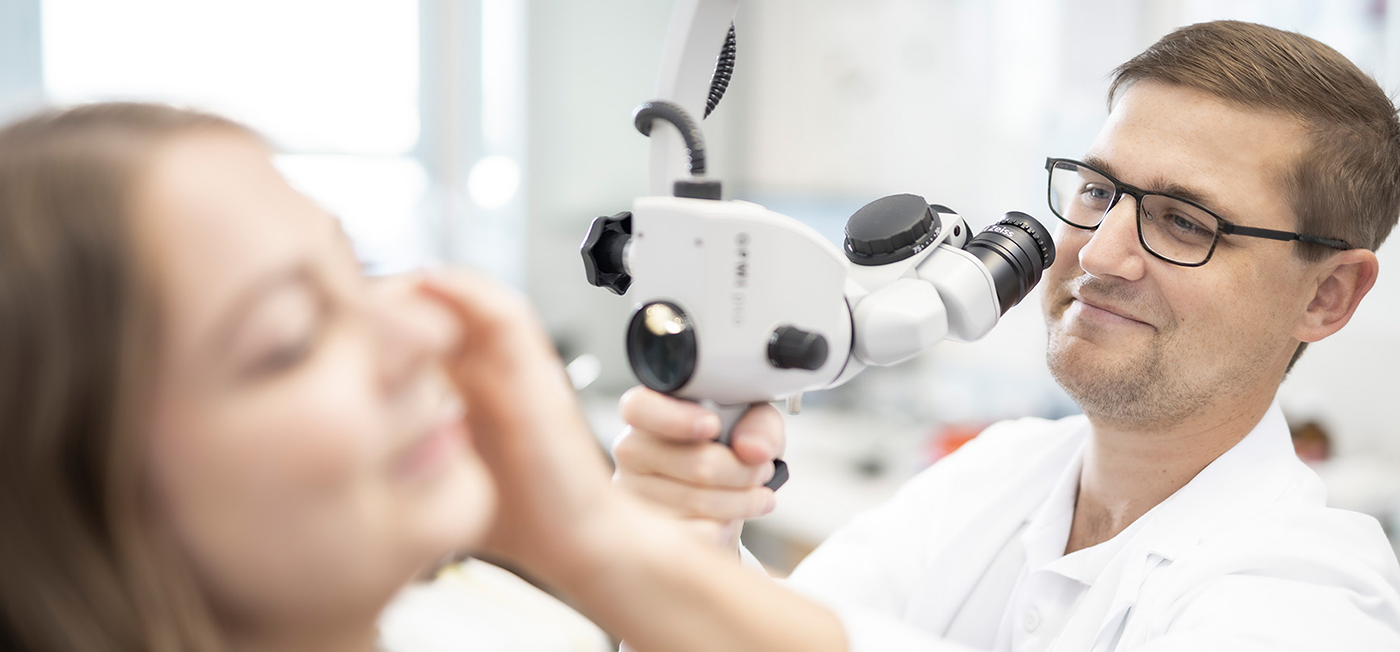Cochlear implants help after sudden total hearing loss
Without a traceable trigger, the hearing ability was significantly worsened or completely gone, some later CI users also tell. Sudden hearing loss is a specific sensorineural hearing loss, but the term also serves as an umbrella term for hearing losses of various causes. Cochlear implants help with total hearing loss.

Yesterday everything was normal, today you suddenly feel like there's absorbent cotton in your ears? The cause could possibly be sudden hearing loss, even in young people. The most important symptom is the described hearing loss of usually 15 to 30 decibels in several adjacent frequencies, usually in only one ear. Rarely, up to 70 decibels of hearing are lost at once during a sudden hearing loss.
"All of a sudden, when I was shaving one cheek, I heard the electric razor much quieter, and when I was shaving the other cheek, I heard it as usual," says one sufferer. Others describe a suddenly unusual tinny or reverberant sound impression in the affected ear. Due to the unilateral occurrence, the first noticeable feature is often that the localization of sound sources suddenly becomes difficult or impossible.
Dr. Wendelin Wolfram is a senior physician at the Department of Ear, Nose and Throat Diseases at the Wels-Grieskirchen Clinic. In the outpatient clinic there, six to eight patients were treated every week in the summer of 2022 due to a sudden hearing loss; in the winter, there are usually somewhat more, the ENT specialist knows from many years of experience.
Unpleasant side effects of sudden hearing loss
In addition to hearing loss, the affected ear often experiences ringing in the ears that cannot be attributed to any external sound source: a condition known as tinnitus. "It is assumed that the brain compensates for the frequencies in which less is heard, and thus a noise is subjectively perceived, for example a high-pitched whistling sound," explains Dr. Wolfram.
At the same time, some sufferers find noise particularly disturbing: as the central auditory system needs more resources to process the now quieter auditory impressions, noise has a particularly detrimental effect on recognition and understanding. The good news is that dizziness is rarely one of the accompanying symptoms.
Sudden hearing loss can have many triggers, but noise is not one of them
When leaving a discotheque or concert, everyone has probably had the experience of street and ambient noise suddenly seeming "pleasantly quiet". The perceived hearing loss occurs suddenly and is therefore registered immediately. In this respect, they resemble a sudden hearing loss, but can be clearly distinguished from it. As a rule, however, hearing can recover in such a case if the noise is followed by a longer period of rest, the noise exposure does not occur too often, and the noise has not exceeded a volume well above the pain threshold.
This is not the case with classic sudden hearing loss, for which various factors are suspected as triggers: "It may be a circulatory disorder, inflammation of the auditory nerve, degeneration of sensory cells or even a metabolic disorder in the inner ear. However, the actual causes of sudden hearing loss are still unproven," says Dr. Wolfram, explaining why prevention is hardly possible here. If the symptoms of a sudden hearing loss occur, however, a specialist should be consulted after 48 hours at the latest!
No medical emergency, but rapid clarification is advisable!
Dr. Wolfram can reassure those affected: "There is a very good self-healing tendency with sudden hearing loss. Between 60 and 70 percent of the symptoms disappear spontaneously within a few weeks. Before starting a therapy, we therefore take between 48 and 72 hours after the onset of symptoms to sound out whether the complaints are already improving."
"In older age, it is sometimes vascular occlusions that cause hearing loss," says Dr. Wolfram, explaining a particularly unpleasant form of sudden hearing loss: occlusions of those blood vessels that should supply oxygen to the cochlea in the inner ear." Such a sudden hearing loss is rarely reversible."
Because permanent hearing loss could remain in some cases, a checkup with a specialist is advised. They can assess whether drug therapy seems necessary: usually cortisone administered on an outpatient basis. These have an anti-inflammatory effect and promote the recovery of the damaged cells.
Permanent hearing loss and recurrent sudden hearing loss
In Europe and the USA, one to two out of every 10,000 inhabitants suffer a hearing loss every year. If hearing cannot fully recover afterwards, hearing aids or hearing implants can help. Only in rare exceptions does a single sudden hearing loss lead to permanent, functional deafness in the affected ear: Less than ten percent of CI candidates have lost their hearing this way.
However, between 30 and 40 percent of CI users are deafened as a result of "repeated sudden hearing loss." This is not a classic sudden hearing loss, but an episode in the course of another disease of the inner ear. Therefore, a clarification is useful in case of repeated sudden hearing loss, although causal therapies for inner ear diseases are rarely available.






